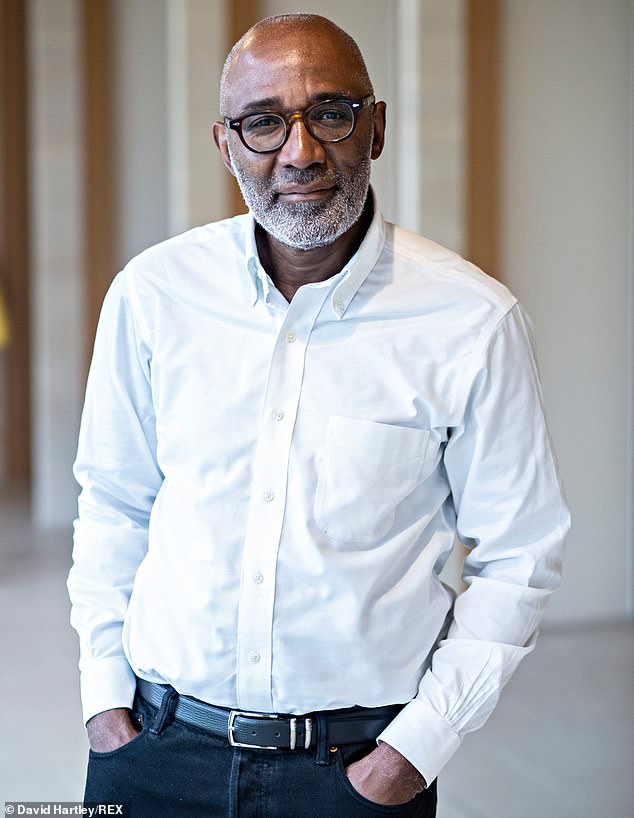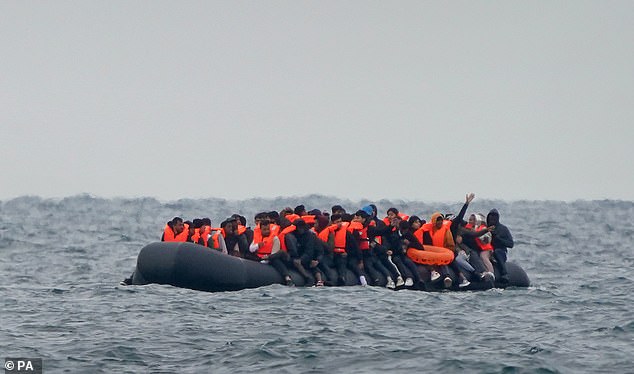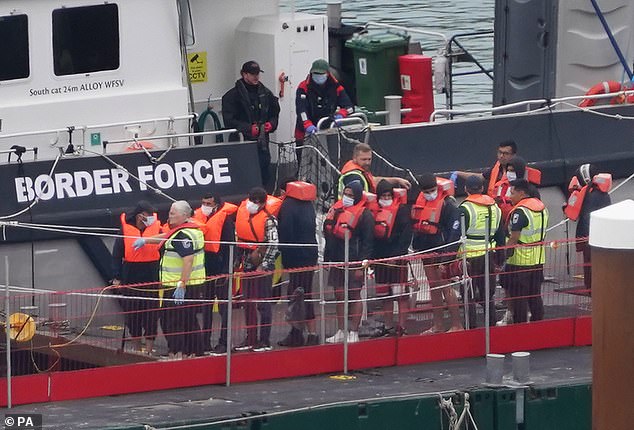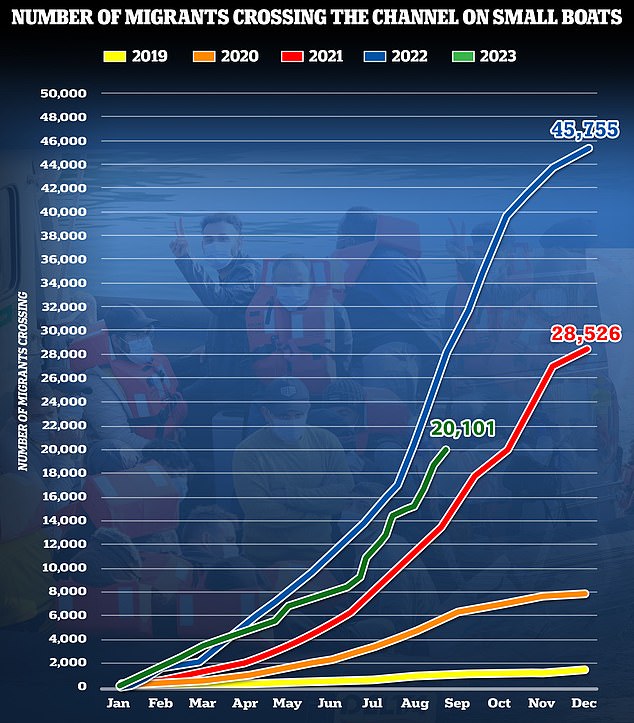
Sir Trevor Phillips has said migrants paying to cross the Channel to get into Britain are ‘cheating the system’ – as he contrasted them to his British Guianan parents who ‘did it the hard way’.
The Labour politician said it was ‘reasonable’ for people to ‘resent’ the idea that it was possible to circumvent the system if you are ‘young, able bodied’ and with enough money to pay a people smuggler.
Sir Trevor, who previously served as head of the Commission for Racial Equality, warned against treating all immigrants as if they were a ‘single mass’ and said not enough effort was being put into identifying those who were in the country illegally.
‘We’ve got to find who the illegal immigrants are – we’re now talking about upwards of a million people – very little effort is going into that, because actually, it benefits quite a lot of people,’ Sir Trevor told the Telegraph.
Sir Trevor Phillips said it was ‘reasonable’ for people to ‘resent’ the idea that it was possible to circumvent the system if you are ‘young, able bodied’ and with enough money to pay a people smuggler
‘Secondly, once you have found illegal immigrants, they should be treated fairly. Most people of a migrant background will take that view because most of us did it the hard way.
‘The aunt who brought me up in British Guiana, who, equal to my parents, is the most important person to me in the world, could not come to my marriage, because we weren’t going to cheat the system and get her here by some dodgy means.’
Sir Trevor, who is the youngest of ten children, was born in London to a railway worker father and seamstress mother who had emigrated from Guiana in 1950 – two years before the arrival of the HMT Empire Windrush.
He is now hosting his own current affairs show, Sunday Morning with Trevor Phillips, which launches on Sky at 8.30am on September 3.
Sir Trevor, previously served as chair of the London Assembly, also stressed the importance of people from different ethnic groups mixing with each other rather than living in separate communities.
He questioned whether the British model of multiculturalism was working when in some towns and cities people would mix together at work but in the evenings go back to areas ‘in which everybody who lives there are people like themselves’.
He listed Burney, Preston and Leicester and some towns in the North West as examples of this phenomenon.
The number of migrants arriving in the UK after crossing the Channel recently topped 20,000.
Labour’s shadow home secretary Yvette Cooper has said the Conservative government has ‘failed to get a grip’ on Channel crossings.






Migrants crossing the Channel on a small boat on Tuesday August 29






The number of migrants arriving in the UK after crossing the Channel recently topped 20,000. Pictured are migrants arriving at Dover
But Prime Minister Rishi Sunak has continued to defend his ‘stop the boats’ plan as he faced questions from broadcasters and insisted the Government was making progress.
The Home Office recently announced that cross-Channel migrants could be forced to wear electronic tags.
The migrants would be GPS tracked in real time and required to report via text message or in person to immigration officers multiple times a day, the Telegraph reported.
Any attempt to remove the tag and abscond would result in any right to bail or to remain in the UK being automatically withdrawn.
It comes amid concerns the UK could run out of capacity in immigration detention centres, with officials asked to find alternative ways of ensuring that thousands of migrants who arrive illegally but cannot be detained do not abscond.






Source: | This article originally belongs to Dailymail.co.uk